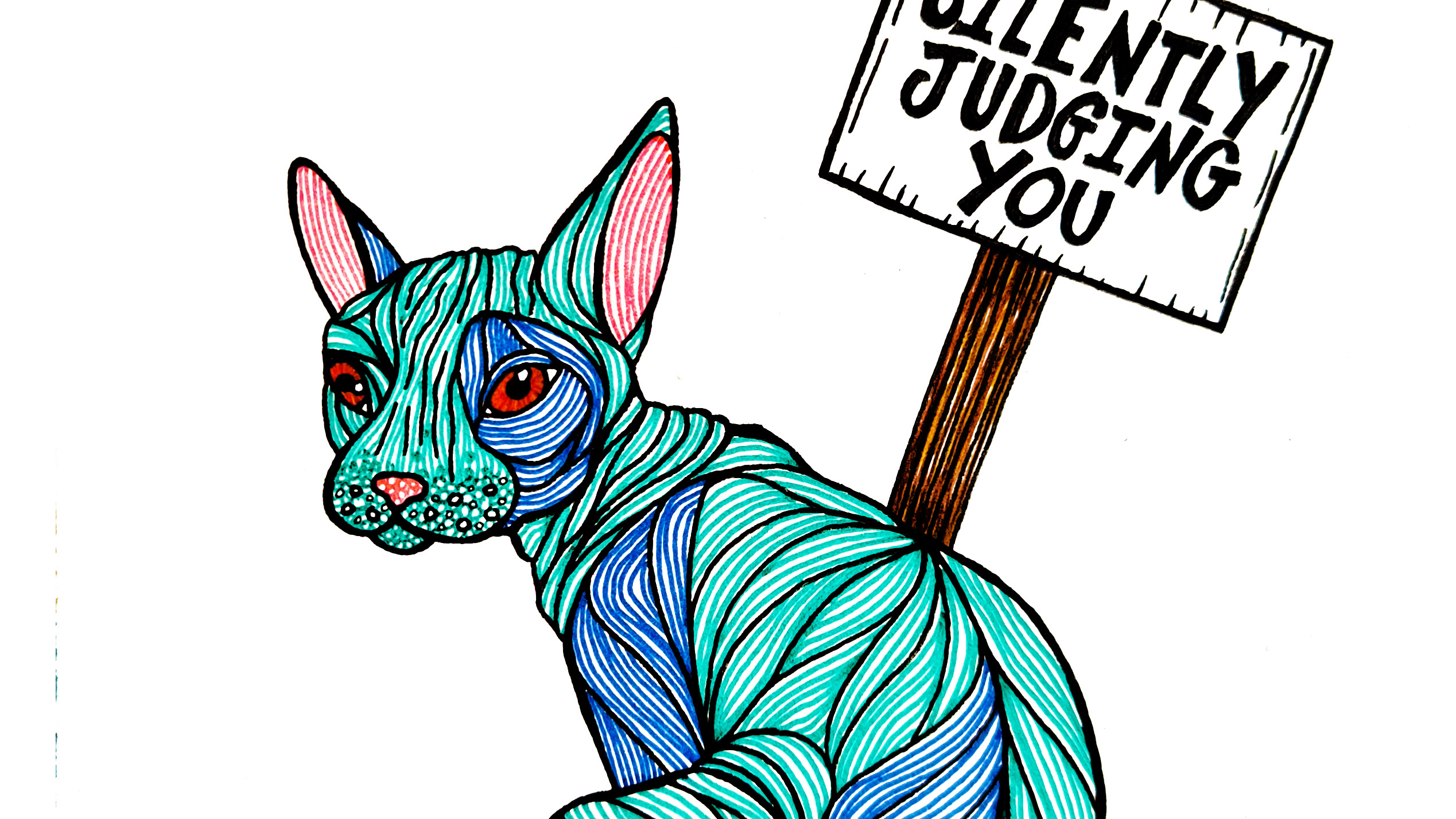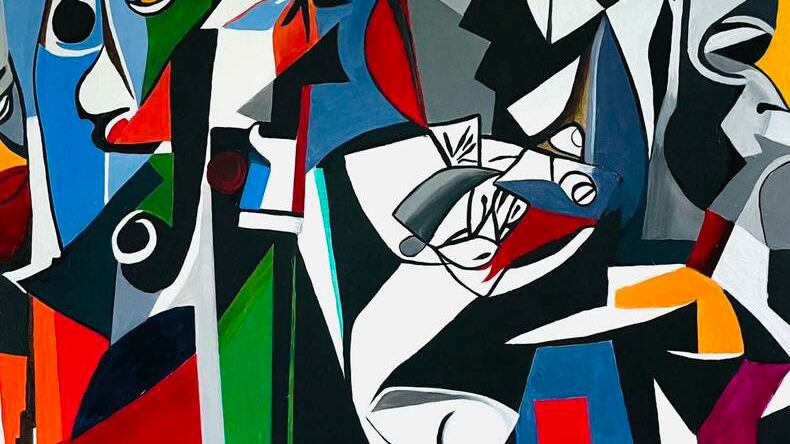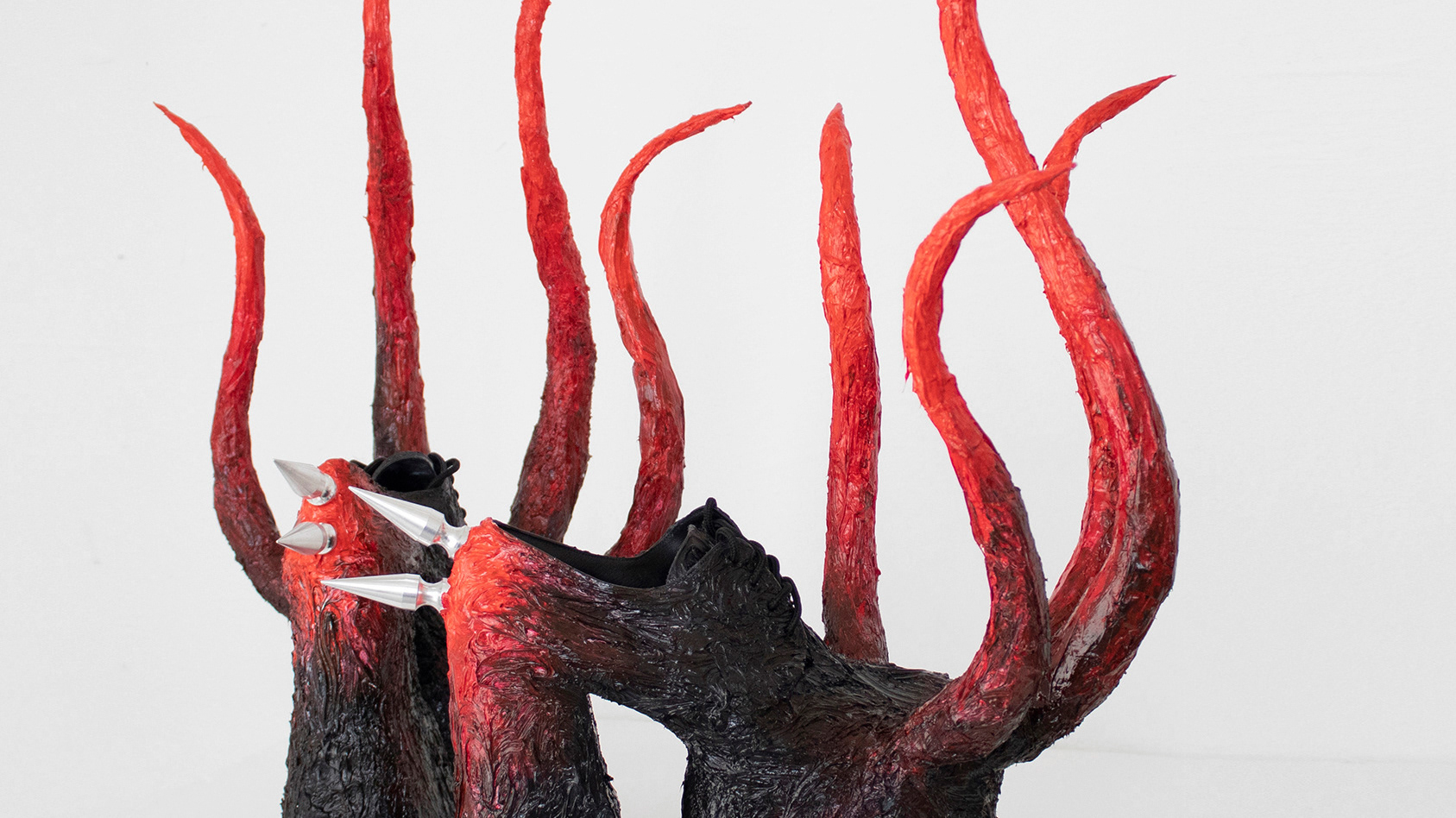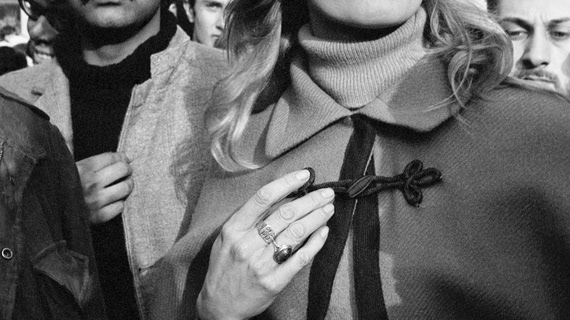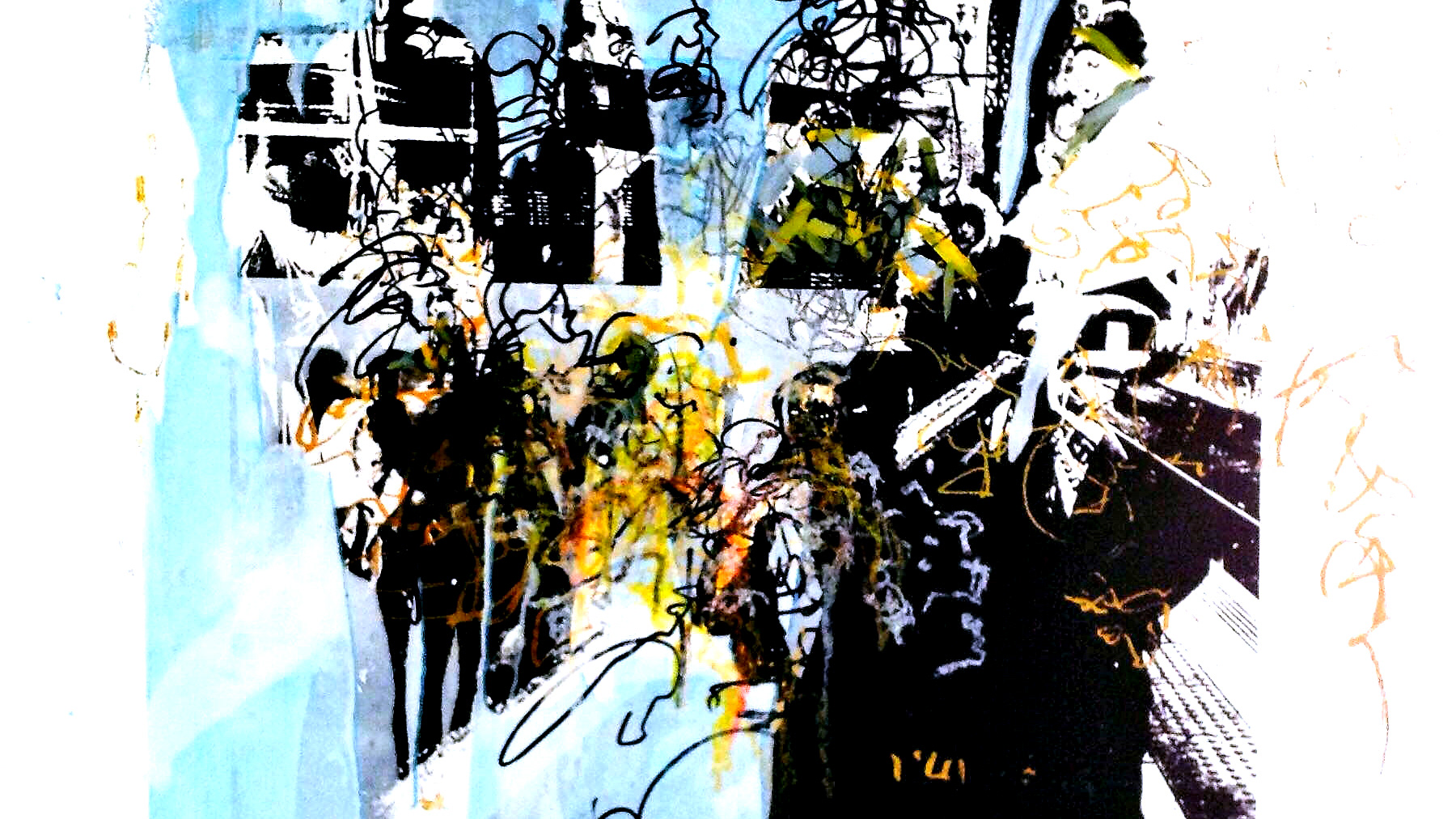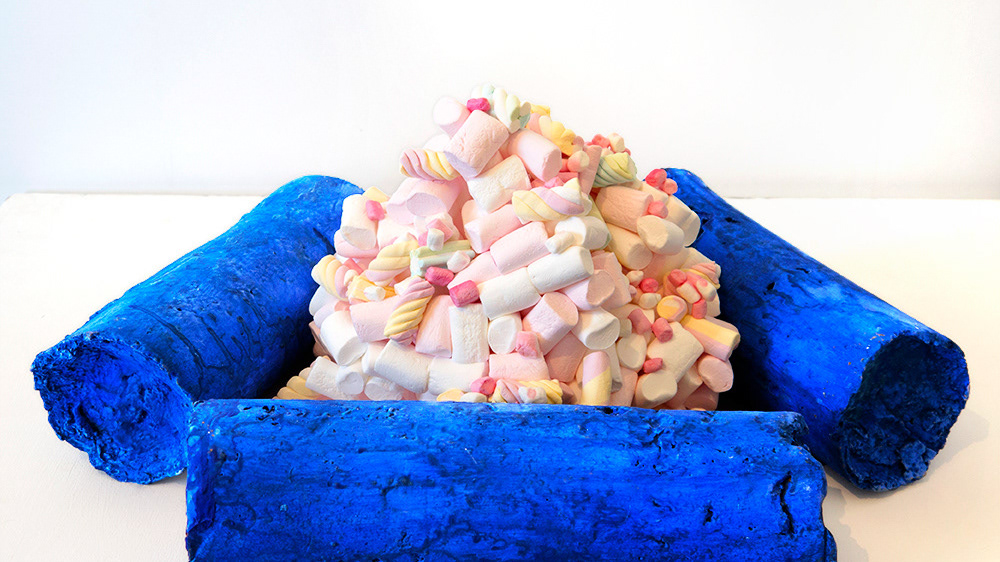absurd close, oil on canvas, 36 x 24cm, 2021
There is a fundamental problem with capitalism, it proliferates disproportionate wealth.
war crime, oil on canvas, 167 x 167cm, 2022
There is a fundamental problem with capitalism, it proliferates disproportionate wealth.
During my BA my knowledge broadened, and I understood how and why the media are powerful and influential in informing and socialising a consumerist society. Through my nurse training, I also understood social anthropology, sociology and psychology, encompassing the enviro biopsychosocial spiritual aspects of each individual. The knowledge attained through my nurse training also gave definitions to all the questions I had always asked, I understood that we are all socialised and normalised, through our young lives and into adulthood. I understood society's inequalities, I saw the wider picture. This knowledge was expounded upon when I entered life as a qualified mental health nurse. Within the priory hospital, I was responsible for conducting anxiety management groups for example. I nursed many professional people such as teachers Business CEOs police and fire service personnel, actors and celebrities. In short, I understood that people are vulnerable, from all walks of life, and I also found this to my own personal cost. During my time as a nurse for the NHS, I nursed both inpatients and within the community. I saw first-hand the social inequalities, the disenfranchised, the lost and the broken. I observed social deprivation, both alcohol and illicit drug abuse, child abuse, homelessness, suicide, homicide, and every other conceivable human deprivation. I read hundreds of patient histories and realised the depth of the inadequacy, inequality and social injustice of the normalised society in which we all live. I have always had faith in humanity, believing in general precedence for good, however, I also understand that humans are fallible, we all possess a darker side, that occasionally, consciously or unconsciously, will out. I also understand that people are mostly a product of their unique experiences, and genetics, of course, the whole nature/nurture debate remains unquantified. In reality, man's inhumanity to man, quantified by history, and sustained today, is a reflection of the state of mankind.
Mainstream television has seemingly broadened the scope and breadth of alignment with public desensitisation. By offering ever greater graphically illicit programming. The proliferation of TV programming with a pornographic bias, for example, with high levels of nudity, sexual intercourse, and sexual freedoms within occupations and personal gratifications.
the cleansing, oil on canvas, 167 x 167cm, 2021
This work Is a personal satirical view of any religion
Psuedo omnipotence, oil on canvas, 152 x 152cm, 2021
A satirical overview of man's inhumanity to man, the ridiculousness of man's arrogance of delusional power. The absurdity of systems of elitism, the inequalities and injustices of contemporary society.
The purpose of the proposed research, therefore, is in three parts: To understand the context by which potentially disturbing images may lead to adverse reactions, even when the image context has been offered in a humorous and realistically honest framework. With specific regard to the painting of satirical imagery. To investigate enviro biopsychosocial spiritual factors that may influence satirical and personally challenging imagery processing, and comprehension. I am also interested in finding how and why the general desensitisation of contemporary moral and ethical paradigms may have been driven by the seemingly ever-expounding cultural decadence.
My research is not concerned with a wholly political view, of current cultural paradigms. Although, political overtones may be present. I am also unconcerned, with the specific characterisation of political or public figures and celebrities. Any characterisation will be within, and limited to, the subtleties of the visually humorized aesthetic of the characters. The characters are the constituents of any given pictorial scenario and are related to the everyman. Rather, I wish to engage in a form of satirical social commentary, Satire specific to social commentary within the painting is relatively unchartered. The narrative form of the work I am proposing is biased toward an overview of contemporary society, and realised through both my own creative imagination, and technique, and characterised by social, ethical and moral dilemmas pertinent to the everyman and everyday life, within modern society.
axis mundi-seven deadly sins, 36 x 42cm, oil on Canvas, 2023
Seven deadly sins.
toxic, oil on canvas, 182 x 137cm, 2022
There is now scientific proof that human beings are responsible for climate change. High Population growth. Taking away and damaging mother earth, we are all part of nature lest man forgets.
